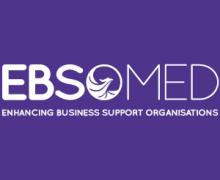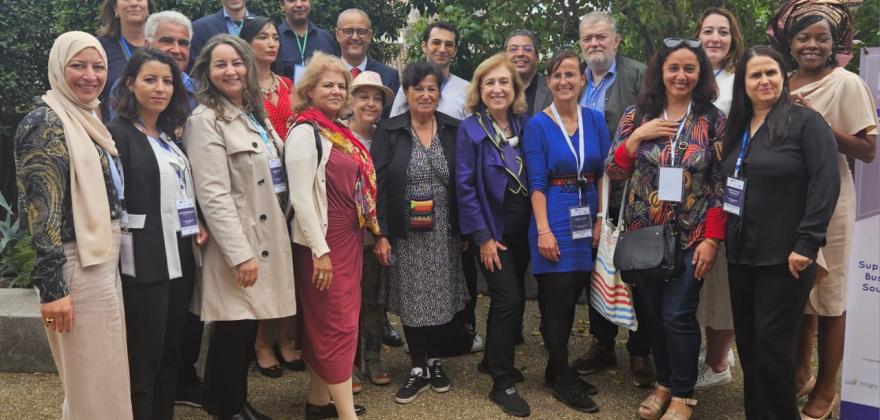EBSOMED is a 4-year project, co-financed by the European Union and coordinated by BUSINESSMED as part of a consortium of six partners. More than thirty organisations from 26 countries are also affiliated to the project....
Building Bridges for Sustainable Development: Insights from the EBSOMED Academy
Building Bridges for Sustainable Development: Insights from the EBSOMED Academy
As part of the EBSOMED project, the Center of Arab Women for Training and Research-CAWTAR organized the Academy "Promoting the social and solidarity economy for a sustainable future: Mastering the 3 zeros of ecological and social transition".
This academy provided a unique opportunity to examine the challenges and opportunities ahead, while promoting the exchange of experience and best practice between countries in the region and beyond. The event brought together experts and economic development organizations from across the Mediterranean region, collectively defining ways of advancing the social and solidarity economy, fostering sustainable development, and meeting the pressing challenges of our time.
The academy took place on May 24 and 25, 2023, in Marseille, France, under the High Patronage of the Délégation Interministérielle à la Méditerranée and in partnership with the Euro-Mediterranean Women's Foundation and the Forum Femmes Méditerranée.
Key themes discussed at the event included the importance of social inclusion through entrepreneurship, diversity and inclusion in the workplace, and access to health services and the fight against exclusion of vulnerable people. These crucial topics were integrated into the debates, focusing on driving sustainable practices, equal opportunities, and universal access to quality healthcare services.
The discussions also revolved around three specific aspects related to zero carbon and its implications. First, the academy explored empowering and engaging youth in sustainable practices, ensuring a carbon-neutral future that encompasses their aspirations. Second, effective governance models were examined, highlighting the role they play in driving the transition towards a zero-carbon society through accountability, transparency, and responsible decision-making. Lastly, the potential of digitalization and innovation in promoting sustainable practices, enhancing resource efficiency, and reducing carbon footprints was discussed.
Throughout the academy, participants from various organizations and backgrounds shared insights, expertise, and best practices. By addressing these critical issues, the academy served as a catalyst for transformative change, promoting the social and solidarity economy as a vehicle for sustainable development. The aim was to shape a future that is environmentally conscious, socially inclusive, and economically resilient.


















